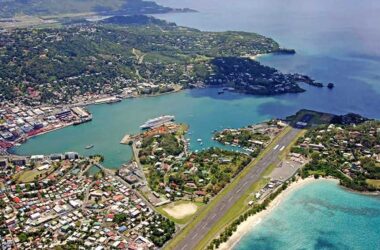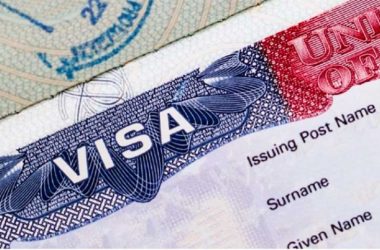
Within a week of returning to office, US President Donald Trump unleashed a series of “America First” policies that have shaken the world.
Those familiar with Project 2025 and the President’s campaign rhetoric, would not be surprised. The US’s withdrawal from the UN Climate Change (UNFCCC) and the World Health Organization (WHO) was always on the cards. The Trump Administration (TA) has not stopped there. On February 3, 2024, it announced a review of all international intergovernmental organisations (IGOs) of which it’s a member, to determine whether they can be reformed, presumably to advance its interests. Further, all conventions and treaties to which it is a party are under review.
While it’s hard to accurately predict the global landscape that will emerge after these reviews, it’s easy to conclude the status quo will not persist. Those IGOs from which the US withdraws will likely experience financial difficulties and be forced to scale back their operations. Moreover, we can expect the US will closely monitor the activities of those IGOs in which it chooses to remain.
The US’s planned imposition of tariffs on China, Canada and Mexico in a month’s time is also generating deep concern. Tariffs have also been placed on steel imports. Predictably, a tariff war has begun, that critics say will severely disrupt world trade, increase the price of critical goods and services, inflict pain on consumers of tariffed goods everywhere, and spark a global recession. Mr. Trump and his economic advisors have dismissed these concerns. They insist the tariffs will help make America strong again, by curbing the illegal importation of deadly fentanyl into the US, bringing back American manufacturers from China to the US, and correcting trade imbalances between the US and tariffed countries.
In such times of extreme uncertainty, the prudent way forward for the Caribbean is to plan for the worst and hope for the best. Indeed, this plan should have been prepared well before the elections. It would appear regional governments did not expect Mr. Trump’s return as President, otherwise, they might have been better prepared to deal with the shocks caused by his policies, outlined in Project 2025, some of which are not new.
Given the openness and fragility of their economies, Caribbean governments are legitimately concerned that a trade war among the world’s largest trading partners will retard economic growth, just as the region is recovering from the ravages of the Covid-19 pandemic. Saint Lucia’s Government has established a Task Force to devise a strategy to mitigate the impact of tariffs on the cost of living and on doing business in the country. Presumably, all CARICOM members are doing likewise.
Hopefully, CARICOM leaders will emerge from their February 2025 intercessional meeting, with a robust strategy to insulate the region as much as possible, from the impacts of the trade war and supply chain disruptions. Remembering the fresh and painful lessons from the pandemic, this strategy should also include a plan to ensure the region’s survival, should Miami’s airports and seaports be put out of commission for any extended period.
Another area of concern is the pausing of nearly all US-funded, bilateral and multilateral aid programmes and projects. It’s not uncommon for new administrations to pause projects to evaluate their objectives and impact. Many, if not all Caribbean governments have done this; and while it’s preferable that these assessments are done while in opposition, often, it’s only when in office that full details of projects emerge.
A major casualty of this pause is the United States Agency for International Development (USAID), which is the US’s main overseas development arm. The President considers USAID to be corrupt and has called for it to be closed. A federal judge has since placed a temporary hold on the move. USAID is financing three critical projects in the Eastern Caribbean relating to citizen security, and youth resilience, inclusion and empowerment. Hopefully, Caribbean governments can save these projects, by convincing the US of their importance in mitigating the negative impacts of its deportation programme. Here too, Caribbean governments that are benefiting from these and other US-funded projects should plan for the worst and arrange to complete these projects using their own resources. PM Pierre has indicated his appreciation of the importance of these projects. I expect they will continue while the US decides their fate.
It’s clear that this time around, the Trump Administration is being more aggressive and determined in executing its “America First” agenda. As I see it, there’s ZERO value in the Caribbean debating the logic of this agenda. The reality is that this agenda threatens the very sovereignty of Caribbean countries. Consequently, CARICOM leaders must emulate the US’s aggression and determination and quickly execute a clear and credible regional strategy to become self-sufficient, in as many areas as possible. The Caribbean Single Market and Economy (CSME) has languished on desks of insularity for too long. Every day its implementation is delayed, only deepens the region’s vulnerability to extreme, external shocks. Resilience must become the region’s mantra. Citizen resilience must be emphasized. Our people must be encouraged to save more; so too must our Governments, especially as borrowing will become more costly.
There must be sustained high-level engagement with the Trump Administration, on matters of mutual interest. This engagement should have started during the election campaign. Collectively, Caribbean leaders might draw parallels between fentanyl and guns and demand that the US does what it’s asking of Canada and Mexico on fentanyl and curb the importation of illegal guns from the US into the region. They might also request the US to phase its deportation programme to allow them to prepare to receive deportees–especially those with criminal records–and seek financial assistance to expand their prison facilities to properly house and rehabilitate these prisoners.
With hardships on the horizon, the Caribbean’s strategy can only be to negotiate for the best outcomes and plan for the worst.













